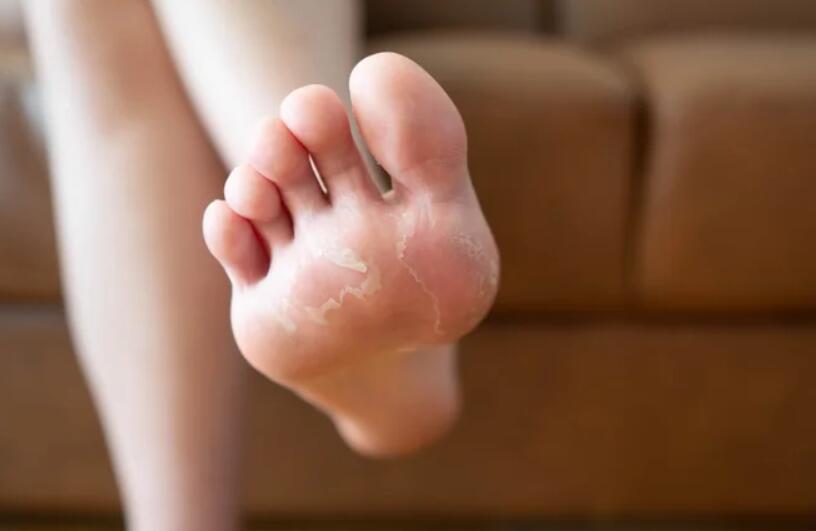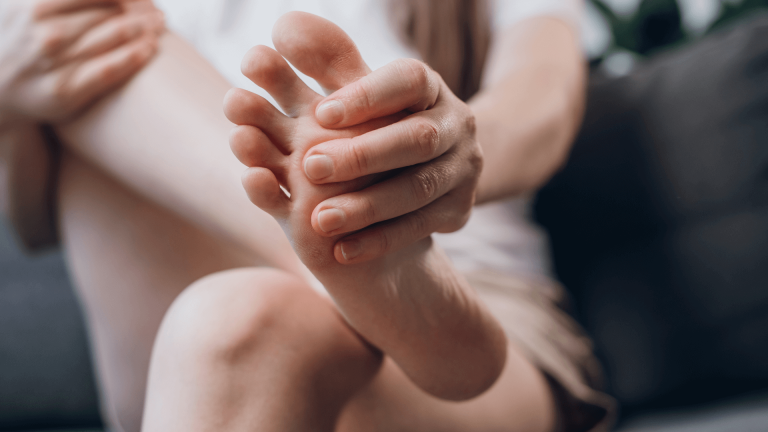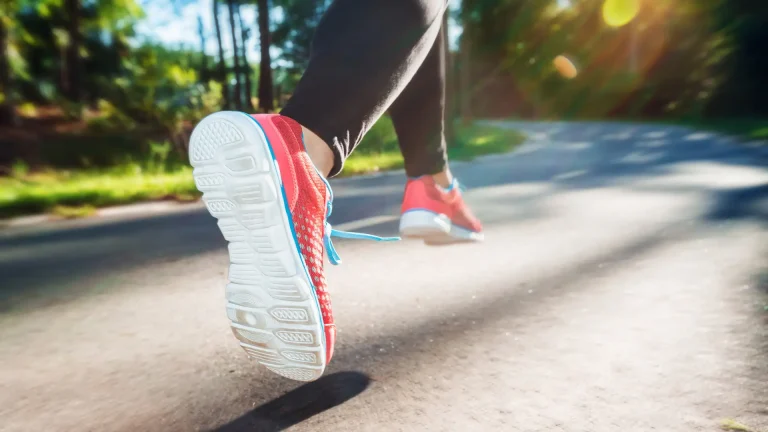Why Your Feet Smell and What to Do About It
Why Your Feet Smell, what to do about it, and how to stop it for good. It’s a great article about a very common problem that we all face.
There’s a whiff of something in the air that’s distinctly… foot. The Is that me?! panic sets in. Many of us have been in your, ahem, shoes. The odd case of bromodosis—yep, foot odor even has its own very official name—is usually nothing to worry about. Here are a few possible reasons your tootsies stink to high heaven and what to do about the stench.
Your sweat has gotten out of control.
Well, to be fair, it’s not really the sweat’s fault. When you’ve got sweaty feet, the moisture and warmth produce a feeding frenzy for bacteria hanging out on your skin. The bacteria actually create the odor by breaking down your sweat and dead skin cells. Pleasant, no?
Change your socks reqularly.
The best way to fight sweat-related stink is to change your socks on the regular, especially when they’re moist, says Alex Kor, DPM, a staff podiatrist at Johns Hopkins Medicine and president of the American Academy of Podiatric Sports Medicine. “You want to wear something that wicks the moisture away,” he says, noting that merino wool is a particularly good fabric to look for.
While the idea of sweaty feet might bring to mind summertime, Kor says he actually sees a fair share of foot odor complaints in winter because many of us are wearing heavy, less breathable socks to stay warm. “Even in the cold, you’re sweating, and then when you come inside you’re not changing those socks because you’re still cold,” he says. You don’t have to be excessively hot to be excessively sweaty.
Try an Antiperspirant
If dry socks don’t do the trick, try an antiperspirant on your feet. Yes, really. Your regular old stick can work (although we can’t personally vouch for putting it back in your armpit after a toes-ward trip). You can also apply prescription-strength antiperspirants a couple times a week at night, Kor says. (Just avoid these 7 ingredients in your antiperspirant.)
You don’t give your shoes a rest.
Just like your socks, your shoes shouldn’t stay warm and moist, either, which is why many podiatrists will recommend that you don’t wear the same pair day after day. Of course, “a lot of people can’t afford to do that,” Kor says, especially if your job requires a certain shoe. Foot hygiene becomes even more important if you’re always in the same pair of shoes. Clean and scrub your feet, and use a pumice stone or PedEgg to scrape off dry skin, he says. The type of shoe you wear can help, too. “If you’re known to have foot odor, wear something that breathes,” Kor says.
Anyone who has had their feet held to the fire (no, not literally!) knows that feeling added pressure and stress often means feeling extra sweaty, too. “There’s no doubt that when people are under more stress, they’re going to sweat more,” Kor says. That stress-induced sweat, however, is made up of different ingredients than regular heat-induced sweat because it’s produced in a different type of sweat gland, and it typically leads to a worse smell. Consider keeping a few spare pairs of socks at the office, or wherever you find yourself feeling most stressed.
You’re hormonal.
A swing in your hormone levels can also change your sweat production and your general smell overall, so pregnant women, menopausal women, and even acne-riddled teenagers might notice a whiff of something particularly pungent coming from their feet. That said, people in the midst of puberty, pregnancy, or rounding life’s corner often have bigger fish to fry. “It’s not like I see a ton of teenagers or pregnant women with foot odor as their main complaint,” Kor says.
An infection got the best of you.
Athlete’s foot is one of gym-goers’ biggest fears, and on top of the discomfort, the fungus can also contribute to foot odor, Kor says. Well-meaning athletes, however, are likely to make one key mistake, he says: “Moisture between the toes will itch for a lot of people,” he says. Thinking it must be fungus, those exercisers will apply an anti-fungal cream, hoping to nip things in the bud. Instead, the moisture from the cream just makes things worse. Save the cream for just the bottoms and sides of your feet, and opt for anti-fungal powder between the toes, Kor says.
In very rare cases, Kor will run through all the classic foot hygiene rules with a patient and still the smell lingers. “There are times I’ve tried everything and nothing works, so I’ve put people on oral antibiotics,” he says. “It’s rare, but certain types of bacteria produced by that excessive moisture will essentially be killed off.




